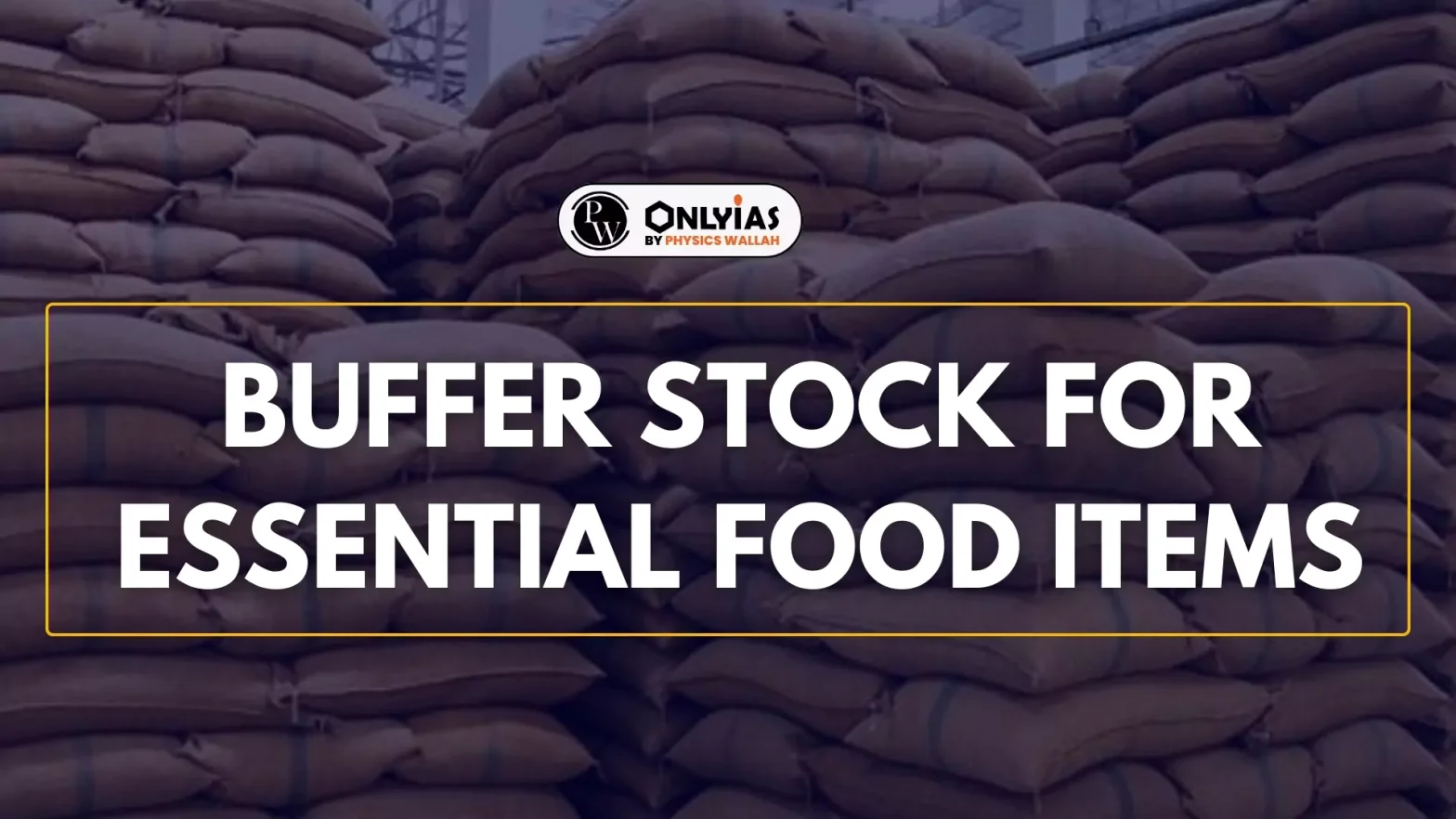To stabilize food prices by reducing extreme fluctuations caused by supply shocks from events like climate change or pandemics, creation of a government-controlled buffer stock of essential food items like pulses, oilseeds, and vegetables is required.
About Buffer Stock
- Refers: An excess stock of goods or commodities than what is required for a specific purpose.
- Introduced in: The concept of buffer stock was first introduced during the 4th Five Year Plan (1969-74).
Enroll now for UPSC Online Classes
Need for Government-Controlled Buffer Stock For Essential Food Items
- To Stabilize Prices: Similar to the Reserve Bank of India (RBI), which maintains foreign exchange reserves to ensure no “excessive volatility”, the government must consider building a buffer stock of essential foods like pulses, oilseeds and vegetables to help control price volatility.
- It is significant for both consumers and producers.
- To Control Inflation: The government did undertake such open market sales of wheat and chana from its previously accumulated stocks, which helped moderate cereal and pulses inflation.
- Low Fiscal Cost: Stocked commodities, such as potato, onion, and tomato (which can be stored in dehydrated forms like flakes, paste, and puree), are disposed of at near-market rates during scarcity/inflationary periods.
- To Manage Supply Shocks: Supply shocks whether induced by climate, war or pandemic engender very large price spikes. Farmers respond by massively ramping up production that, in turn, leads to steep price declines.
- Climate-induced disruptions, such as fewer rainy days and extended dry spells, also shorter winters and heat waves have been felt in poor crops of rabi pulses, tomato, potato and even wheat in central India.
- To Support Farmers: Creating buffer stocks will protect farmers from drastic price drops and provide them with a sense of security.
- Example: Decline in slashed procurement prices for cow milk from by dairies to farmers from Rs 37-38 per liter (in February-March of last year) to Rs 26-27 because of Skimmed Milk Powder (SMP) realizations crashing (from Rs 315-320 to Rs 200-210 per kg) discourages dairies from procuring and farmers from feeding their animals properly.
- It could be a precursor to milk shortages and inflation next year.
- No Need For Regressive Actions: A buffer stocking policy in food items will also do away with the need for regressive anti-farmer measures such as banning exports or imposing stock limits on private traders and processors.
Measures Required
- There is a need to take appropriate measures:
- Need to provide adequate infrastructure such as cold storages and cold storage vans
- Need to tackle the challenge of corruption
- Need to maintain the quality assurance
Check Out UPSC NCERT Textbooks From PW Store
Conclusion
Creating a buffer stock of essential food items procuring from farmers/processors during years of surplus production and offloading the same in times of crop failures can help in combating extreme price fluctuations and in eliminating restrictive measures that could lead to economic stability and efficiency.
![]() 10 Jul 2024
10 Jul 2024
